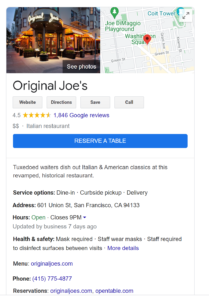Anyone who is familiar with the idea of wholesaling in real estate will also be familiar with contract assignments. In a contract assignment, a wholesaler enters into an agreement with a seller on a property and then assigns the rights to a buyer in exchange for an assignment fee. Sometimes you can’t do a contract assignment for legal reasons. This is where the double closing comes in.
The wholesaler facilitates the transaction between the original seller and the final buyer. The buyer normally invests in real estate and uses the property as a way to add to their rental portfolio. With a contract assignment, the wholesaler never owns the property. They negotiate the deal and sign the deal over to the buyer. The wholesaler profits from the difference in the selling and buying prices.
Contract assignments aren’t legal in every state and some title companies won’t participate without the actual seller and buyer as part of the process. Lawmakers want to ensure that everyone is appropriately represented in the process. They also don’t want someone without a real estate license being in the middle of a real estate transaction. The good news is that there is a way to do whole selling without treading on this unstable legal terrain. This is called a Double Closing.
Double Closings Versus Traditional Closings
Closing is the last step in any real estate transaction. It means the completion of the sale. That being the case, “double closing” at first sounds morally and possibly legally dubious due to the fact that it is similar to a transaction type that is illegal in some markets. Whether it is morally questionable is up to you. But contract assignment is definitely legally problematic in some parts of the country- while the alternative is not.
A double closing is also known as back to back or simultaneous closing. What it means is that a transaction is being completed where there is not just a buyer and a seller, but a seller, an investor (known as the wholesaler), and the buyer. Because there are two parties paying the wholesaler, there are two transactions in one- hence the name. The wholesaler buys the property from the seller at a reduced price. Then the buyer pays the wholesaler a higher price for the investment property.
In some cases, double closing transactions happen as a way to get around the potential legal problems that can result in some locations. Other times, the parties involved just prefer it as the way to close. In any event, it is an alternative to contract assignments, the reasons for which we will explore later. But first, we should make sure we understand the difference between simultaneous closing and contract assignment.
For the wholesaler, a double closing means that they need the funding to buy the house. This is a consideration for the wholesaler. For a brief time, which may only be minutes they actually own the house.
Contract Assignment vs. Double Closing in Real Estate
A double closing in real estate happens when a wholesaler finds a seller who is eager to sell and agrees on a sale price below the market value of the property.
The wholesaler buys the property and sells it to an end buyer at a higher price than he paid. Both deals are closed simultaneously, which is why it is sometimes called back-to-back closing.
In this type of deal, the wholesaler benefits most because he or she has connections, assets, or methods that make selling the property particularly easy. The wholesaler can get more money than the seller would for the property, and he can find a buyer who is willing to pay the market price or more for the property.
In a contract assignment, the wholesaler signs a contract after negotiating a sales price with the seller. Then the wholesaler has limited time to locate a motivated buyer (usually 30 to 45 days). If the wholesaler does not locate an eager buyer in that time frame, he must leave the deal. If a buyer is found, however, the wholesaler sells the contract to the buyer at an elevated price.
With a contract assignment, the wholesaler never actually owns the house. They don’t need any cash for the deal. This is why many investors like to start their real estate investing career in wholesaling.
At a Glance – Double Closings and Simultaneous Closings
Simultaneous Closure in Real Estate
Eager-Seller + Wholesaler (buys at a low price) + Eager-Buyer (pays a higher price) = a Back to Back Closure
Contract Assignment in Real Estate
Seller + Wholesaler Working Under a Contractual Time Constraint + Eager Buyer + Second Contract at a higher price = a Contract Assignment
Reasons to Go With a Simultaneous Closure Deal
Some lawmakers take a dim view of Contract Assignments because the wholesaler never makes a purchase. That means that the owner is essentially selling the property (with help) but is doing so without a license to sell real estate. Therefore, contract assignments cannot be legally completed in some locations.
Motivations Behind Simultaneous Closings
Everyone in the process has different motivations. That’s no problem as long as those motivations don’t conflict.
Wholesaler:
The wholesaler has sales methods, connections, or other assets that enable him or her to quickly buy and sell properties. They can be a resource to both the buyer and the seller.
Seller
The seller needs to sell their property. Often in wholesaling transactions, the seller is a motivated seller. This means that they need to sell their house. The seller may have financial problems or the house may be in a condition that traditionally makes it tough to sell. Whatever the reason, they want to sell their house and the wholesaler provides a way to do that.
Buyer
The buyer typically is an investor looking to make money on the property. They may be looking to fix it and flip it for more money than they bought it. They may be looking to rent it out. The wholesaler for the buyer is a convenient way to find a profitable deal.
Wrapping It Up
If you’re looking into selling a property quickly, a back-to-back sale or contract assignment may an option. Make sure that you take care with a contract assignment. Find out whether or not this is legal in your area first. If so, a simultaneous closing deal are often the better choice.

